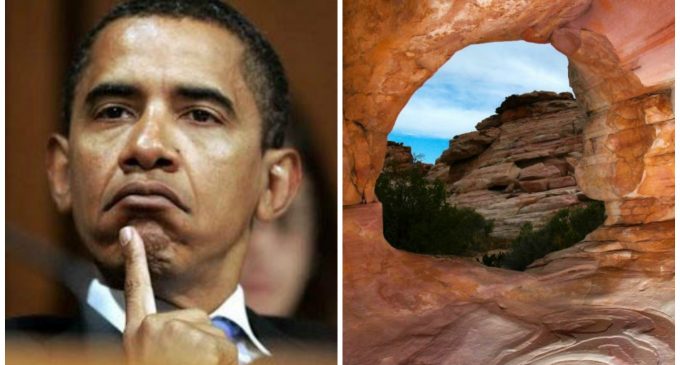
It won’t be long before President Obama is vacated from the White House, but the consequences of the far-left, big government policies he enacted will remain with us for years to come.
In contrast to the vast majority of Americans who believe that the government should serve the people, Obama seems to think that it is the people who should do the serving. The way he sees it, every right and luxury we enjoy is not because of our commitment to safeguarding our rights and willingness to work towards our goals but because bureaucrats in Washington permit us to enjoy said rights and luxuries.
The president articulated this very position when he infamously stated “You didn’t build that!” in response to free-market advocates. Intended as a gotcha, the comment instead served as a reminder of how little respect Obama and his fellow liberals have for the ingenuity of the American people.
Read more on the next page:

Might be a good idea to save more of our land for national parks, at least that less ground for the damn Muslims to get put on.
Start the PUMP Trump! The third rail of politics is “codification” it is beyond INSANE here in the Republic of Ca.
Obama MUST be held accountable for ALL his crimes committed against America
Hang him
That picture is of WINDOW ROCK AZ
10acres at that.
None of them have the authority they twisted the law to do it.
Something he could teach at…
Harvard Law School…
Unconditional, means nothing.
They legally can’t take land from the states or American people like they did to the Indians.
Actually they can Via the Fifth Amendment:
The Supreme Court has held that the federal government and each state has the power of eminent domain—the power to take private property for “public use”. The Takings Clause, the last clause of the Fifth Amendment, limits the power of eminent domain by requiring that “just compensation” be paid if private property is taken for public use. The just compensation provision of the Fifth Amendment did not originally apply directly to the states, but since Chicago, B. & Q. Railroad Co. v. Chicago (1897), federal courts have held that the Fourteenth Amendment extended the effects of that provision to the states. The federal courts, however, have shown much deference to the determinations of Congress, and even more so to the determinations of the state legislatures, of what constitutes “public use”. The property need not actually be used by the public; rather, it must be used or disposed of in such a manner as to benefit the public welfare or public interest. One exception that restrains the federal government is that the property must be used in exercise of a government’s enumerated powers.
The owner of the property that is taken by the government must be justly compensated. When determining the amount that must be paid, the government does not need to take into account any speculative schemes in which the owner claims the property was intended to be used. Normally, the fair market value of the property determines “just compensation”. If the property is taken before the payment is made, interest accrues (though the courts have refrained from using the term “interest”).